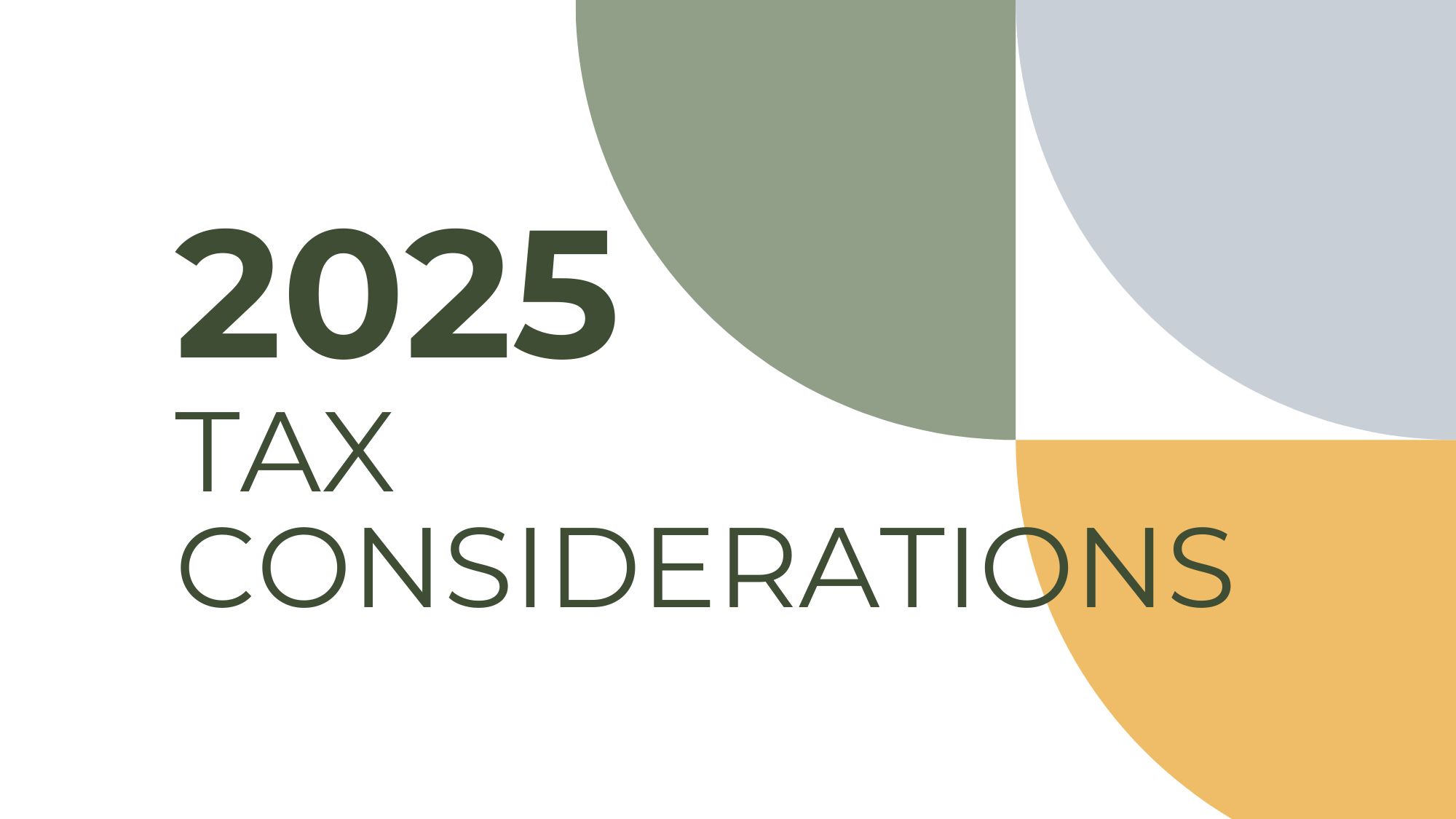2025 Tax Considerations
Please click the title below to jump to the section you like to read. Individual Tax Changes Extension and Enhancement of Reduced Income Tax Rate Rate reductions, bracket changes. Under pre-Act law, for tax years 2018 through 2025, the Tax Cuts and Jobs Act (TCJA) temporarily modified the number of income tax brackets and reduced the…
Significant changes to information reporting go into effect for the 2026 tax year
If your business has employees or uses independent contractors, you have associated annual information reporting obligations. The One Big Beautiful Bill Act (OBBBA) makes changes impacting these rules, but not for the 2025 tax year. Tips and overtime income For 2025 through 2028, the OBBBA creates new deductions for employees who receive qualified tips income…
Changes to charitable donation deductions are on the horizon
Beginning in 2026, individuals who itemize deductions and donate to charity will face a new limit on their charitable deductions. And in some cases, they’ll face two new limits. But there’s some good news for nonitemizing individuals who make charitable donations. New charitable deduction floor Under the One Big Beautiful Bill Act (OBBBA), starting in 2026, if…
New law eases the limitation on business interest expense deductions for 2025 and beyond
Interest paid or accrued by a business is generally deductible for federal tax purposes. But limitations apply. Now some changes under the One Big Beautiful Bill Act (OBBBA) will result in larger deductions for affected taxpayers. Limitation basics The deduction for business interest expense for a particular tax year is generally limited to 30% of…
Checking off RMDs on the year-end to-do list
You likely have a lot of things to do between now and the end of the year, such as holiday shopping, donating to your favorite charities and planning get-togethers with family and friends. For older taxpayers with one or more tax-advantaged retirement accounts, as well as younger taxpayers who’ve inherited such an account, there may…
6 last-minute tax tips for businesses
Year-round tax planning generally produces the best results, but there are some steps you can still take in December to lower your 2025 taxes. Here are six to consider: 1. Postpone invoicing If your business uses the cash method of accounting and it would benefit from deferring income to next year, wait until early 2026…
There’s still time to save 2025 taxes
Just because it’s December doesn’t mean it’s too late to reduce your 2025 tax liability. Consider implementing one or more of these year-end tax-saving ideas by December 31. Defer income and accelerate deductions Pushing income into the new year will reduce this year’s taxable income. If you’re expecting a bonus at work, for example, ask if…
New itemized deduction limitation will affect high-income individuals next year
Beginning in 2026, taxpayers in the top federal income tax bracket will see their itemized deductions reduced. If you’re at risk, there are steps you can take before the end of 2025 to help mitigate the negative impact. The new limitation up close Before the Tax Cuts and Jobs Act (TCJA), certain itemized deductions of…
Shift income to take advantage of the 0% long-term capital gains rate
Are you thinking about making financial gifts to loved ones? Would you also like to reduce your capital gains tax? If so, consider giving appreciated stock instead of cash. You might be able to eliminate all federal tax liability on the appreciation — or at least significantly reduce it. Leveraging lower rates Investors generally are subject to…
Year-end tax planning for accrual-basis taxpayers
Projecting your business’s income for this year and next can allow you to time income and deductible expenses to your tax advantage. It’s generally better to defer tax — unless you expect to be in a higher tax bracket next year. Timing income and expenses can be easier for cash-basis taxpayers. But accrual-basis taxpayers have…











